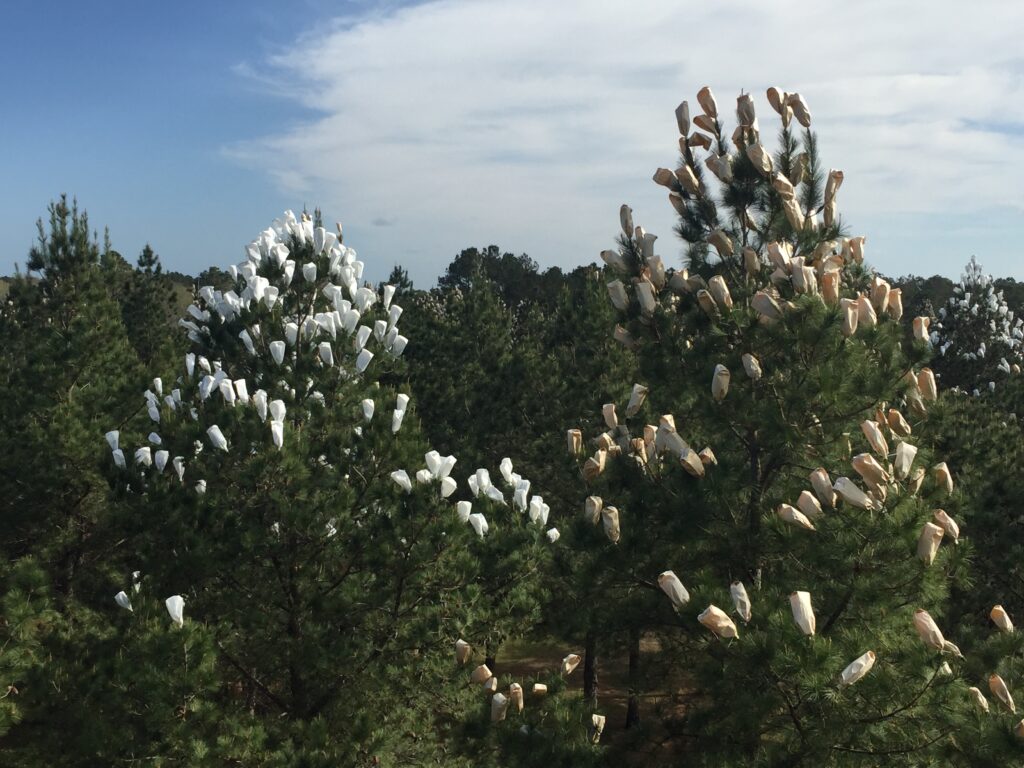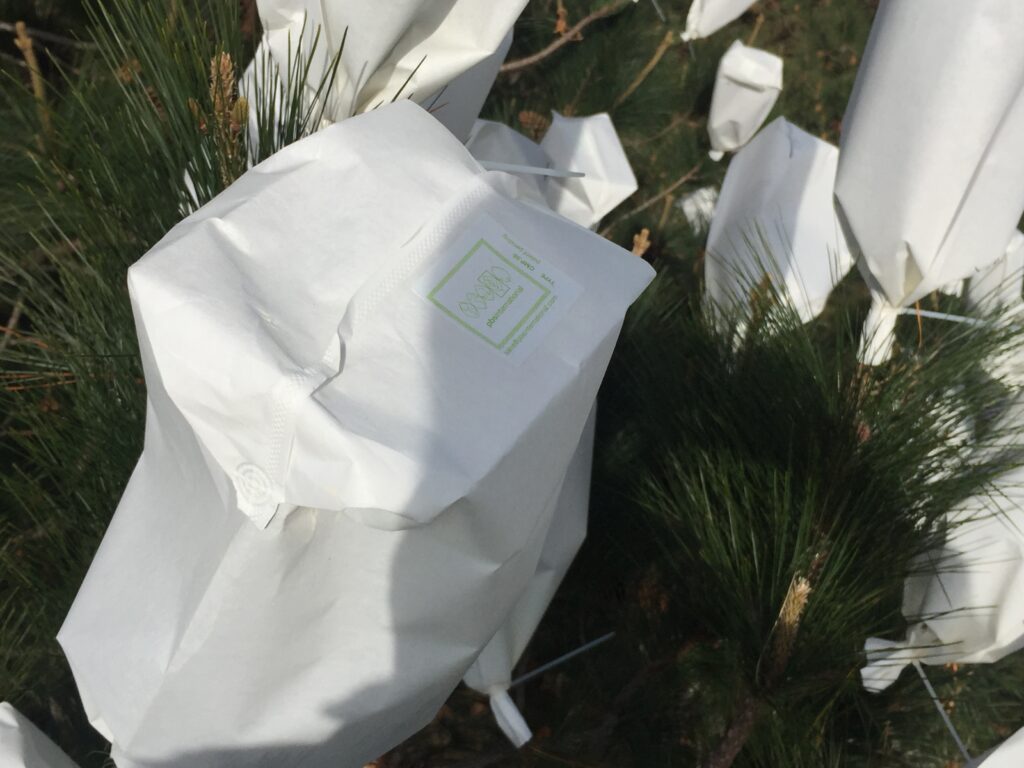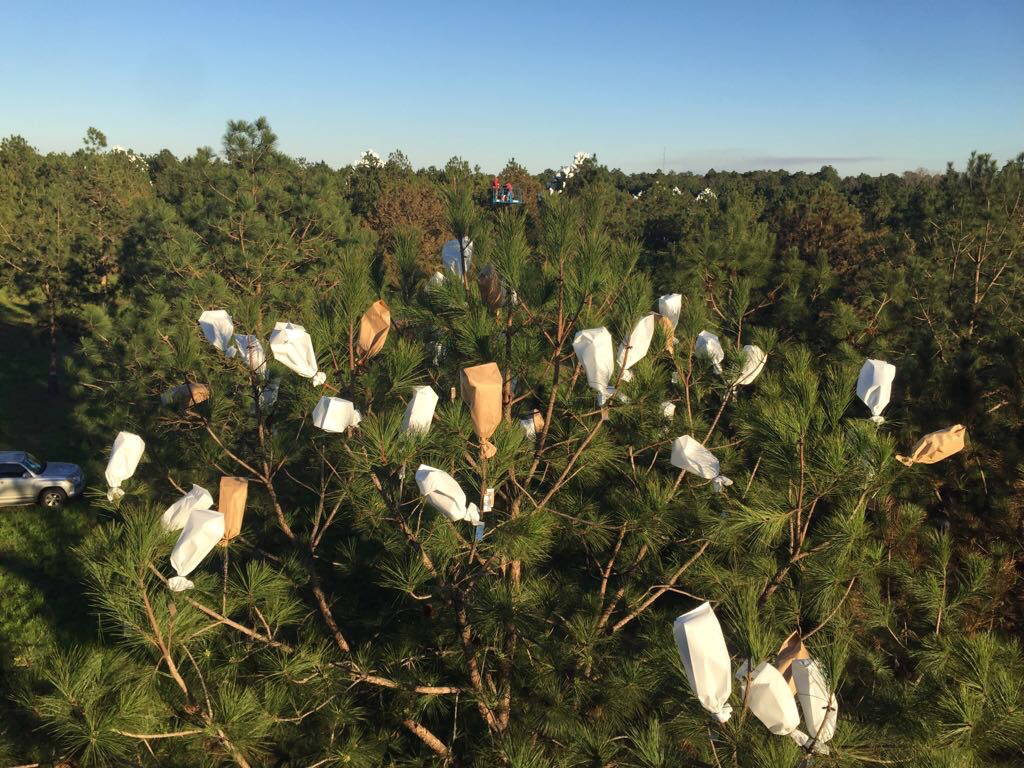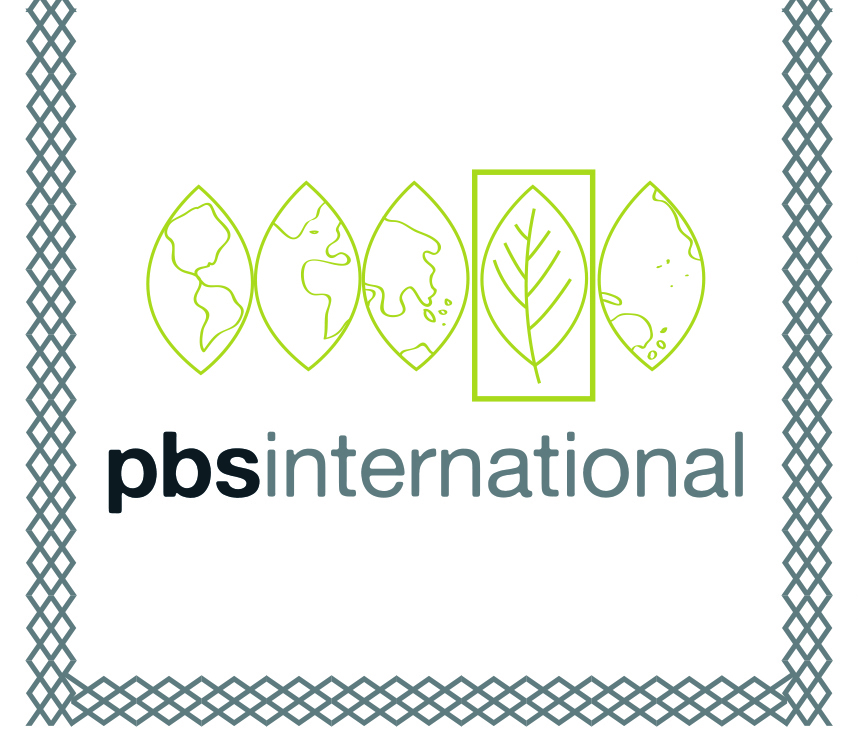We are happy to share a recent research paper showing the effects of pollen bag shape and material on seed production in loblolly pines. The paper, Pollination Bag Type Affects Ovule Development and Seed Yields in Pinus taeda L., by Austin J Heine, Trevor D Walker, Jackson B Jett, Fikret Isik and Steven E. McKeand, is published in Forest Science (April 2023).
In loblolly pine (Pinus taeda L.), cones pollinated in the open air always yield more seeds than those in pollination control bags. In this study, the researchers set out to understand why. They compared 13 bag types, as well as open pollination, across multiple orchards, and used cone analysis and seed yield measurement to assess performance.

They discovered that pollination timing and the quality of the pollen application were fundamental factors affecting seed production. But when orchards were well managed, the choice of pollen bag also played an important role. The best-performing bags were PBS bags made of specialist non-woven materials using polyester and polypropylene, which had a predicted seed yield around 10% higher than non-wired kraft paper bags (Kw).
This research echoes the success of a separate study of our bags in loblolly pine.
Highlights from the paper:
• “[C]ones inside of the breathable material were subjected to an environment similar to ambient air for temperature and humidity, which was not the case for bags composed of cellulose and polythene materials.”
• “The bags with the highest proportion of filled seed were made of polypropylene (PBS-I2) or a proprietary material [duraweb florestal®] which has layers of polyester (PBS-A and PBS-A2)”
• “Another consideration is the time and effort required for bag installation, which was found to be greater for the Kw than PBS prototypes”


Read more about our Controlled Mass Pollination (CMP) bags for forestry
Previous research based on PBS CMP bags designed specifically for controlled mass pollination of loblolly pine: https://www.pbsinternational.com/research/comparison-of-pollination-bags/


